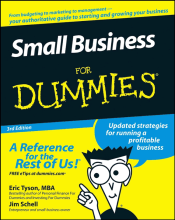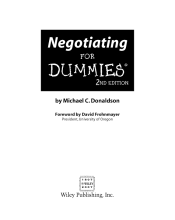Evaluating a Business to Buy
9 important questions on Evaluating a Business to Buy
What are the obstacles you're likely to encounter when buying a business?
- The necessary confidentiality of transactions: you can't publicly investigate a lot of the background information.
- Few listings: a lack of businesses for sale means the seller is in control.
- Unpublished prices of previous sales: you often don't have any benchmarks or templates to follow.
- Emotional circumstances surrounding the sale: people can get more emotional about selling their business than they do about selling real estate. Blood, sweat, retirement, and yes, egos, are all involved.
How is the investigative process called?
If your financing doesn't come through or you find some dirty laundry in the business, contingencies allow you to legally back out of the deal. Making an offer and doing the necessary research are costly, in both time and money, but you'll be glad you did both after the deal is done and you can rest easy, knowing that you've purchased a good business.
What should one look for while investigating a business owner?
- Business background: request and review the owners' and key employees' resumes. Are the background impressive and filled with relevant business experience?
- Personal reputations in the business community: of course, we shouldn't need to remind you that you can't always accept the statements of others at face value. You have to consider the merits, or lack thereof, of the source.
- Credit history
- Key customers
- Key employees
- Higher grades + faster learning
- Never study anything twice
- 100% sure, 100% understanding
What should one ask to the key customers when investigating a business?
- In general, how is the company perceived by its customers?
- Does it deliver on time?
- How do its products or services compare to its competitors offerings?
- Does it have a culture of integrity?
- What does the company do best?
- What does it need to improve?
How can we discover why the current owner is selling?
- Chat with the owner.
- Talk to the business owner's advisors.
- Confer with industry resources.
- Seek out customers.
- Discuss with employees.
In your discussion with and investigatiosn about the current owner, also reflect upon these final, critical questions:
- How important is the current owner to the success of the business?
- What will happen when he or she is no longer around?
- Will the business under new management lose key employees, key customers, and so on?
Why is it important to understand the company's culture?
When you buy a company, you should maintain the company as it had been run until you've studied and learned its real strengths and weaknesses, know the business well enough to recognize the skills of the employees, and could formulate an informed plan to move the company forward.
What is an excellent way to uncover inflated profitability as reported on the financial statements that the current business owner shares with you?
Warning: If you discover that the business owner has overtly tried to cheat the government, chances are he may try the same thing on you.
How does one uncover lease contract terms?
- Check comparables - that is, what similar locations lease for - to see whether the current lease rate is fair.
- Talk to the building owner to discover his plans.
- Ask for and review (possibly with the help of a legal advisor) the current owner's lease contract.
- Pay extra-careful attention to the provisions of lease contracts that discuss waht happens if the business is sold or its ownership changes.
How do we evaluate special franchise issues?
- Thoroughly review regulatory fillings.
- Evaluate the franchiser's motives.
The question on the page originate from the summary of the following study material:
- A unique study and practice tool
- Never study anything twice again
- Get the grades you hope for
- 100% sure, 100% understanding
































